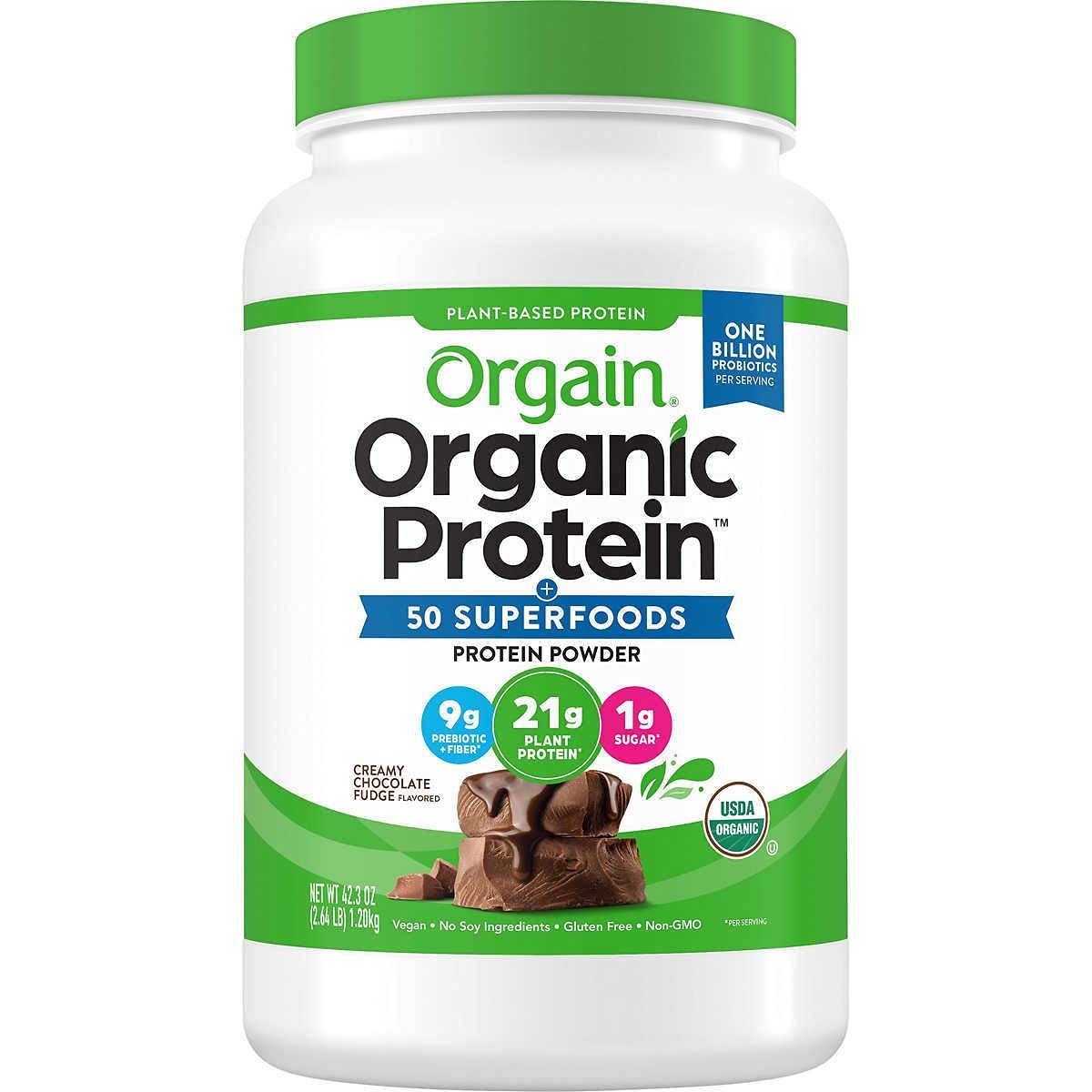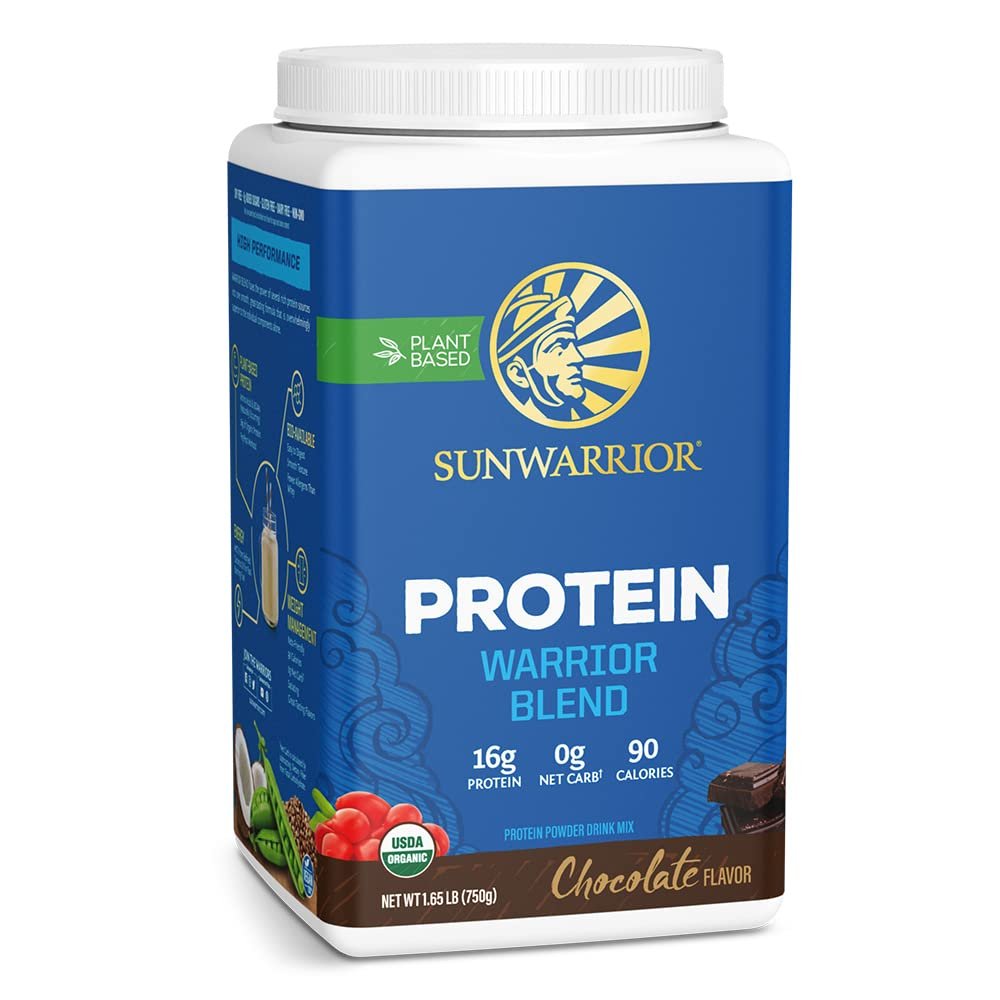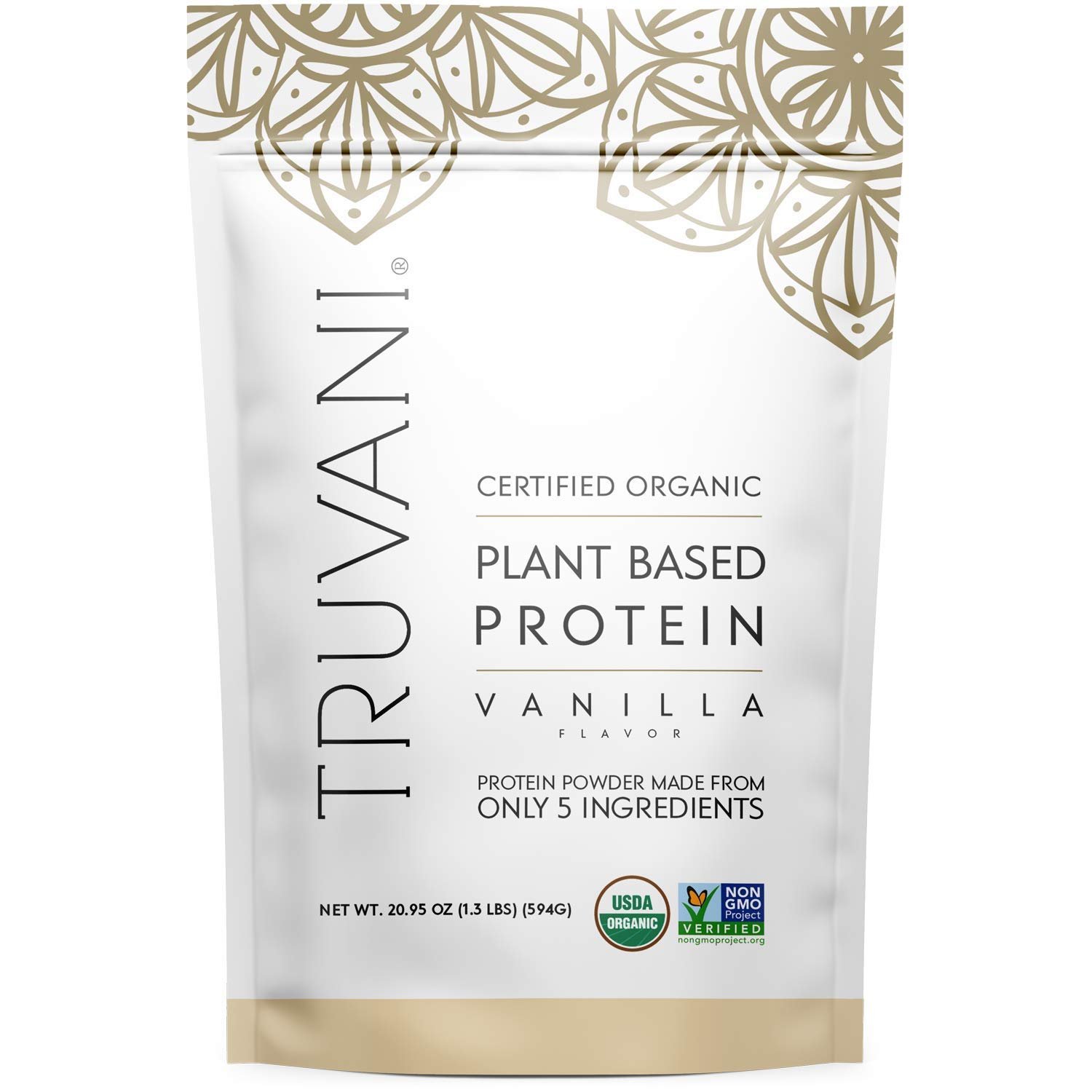The Benefits of Plant-Based Protein Powder and 4 of the Best Brands, According to a Nutritionist
If you’re looking to include more plant-based proteins into your diet, supplementing with a high-quality plant-based protein powder can be an excellent way to do so.
With so many different brands out there, it can be hard to know which plant-based protein powder offers the best value and quality - and making sure to avoid potentially harmful ingredients. In this article, we’re exploring the benefits of protein powder, how much to incorporate into your diet and some of the best brands available on the market.
Protein powder for muscle gain and lean muscle mass
Many people turn to protein powder as an easy way to get in more protein after a workout. Protein is important for muscle growth and for maintaining lean muscle mass.
Research has determined that beyond the recommended dietary allowance (RDA) for protein intake, an intake of 1.2g to 1.6g of protein per kilogram of bodyweight is encouraged for optimal health.
1.2g - 1.6g/kg bodyweight per day
This exact number will vary depending on a person’s goals and needs. Someone looking to maintain their current weight and muscle mass may use the 1.2g/kg/day formula. For a person weighing 150 lbs, or 68 kg, this looks like 81.6g of protein per day. If that same person is looking for body recomposition and losing fat mass to encourage lean muscle mass, they may use the goal of 1.6g/kg/day, which amounts to 108.8g of protein per day.
Studies show that 20-30 grams of protein at each meal promotes fullness and preserves your body’s muscle mass more efficiently than smaller amounts. Protein powder can be used as an easy way to meet your daily quota and I typically recommend 25 to 30 grams of protein per meal when possible. If this feels hard to reach, try adding a protein shake or otherwise adding a source of protein to your snacks in between meals to reach your daily goal.
How do you know If you should be taking protein powder?
Eating protein is an important part of muscle building, maintaining lean muscle mass, staying satiated and satisfied, and supporting healthy weight loss (if that’s something you’re looking for). However, many people don't get enough protein from their diet, so I generally recommend adding a protein powder for people who are not otherwise reaching their protein goals without a supplement.
If your meals are not regularly protein dense it can be hard to achieve your daily protein quota. This is especially important for people who might be vegetarian or vegan and don't eat a lot of meat or who have nutrient deficiencies that need to be addressed.
While it is important to find meat-free protein dense sources such as lentils, pulses and tofu, sometimes a protein supplement can give you an easy alternative to quickly add in some extra protein, in addition to the meal you are having.
Your protein needs and intake will shift depending on your body’s needs and goals, which can include:
changing your body composition (for example, lower fat mass and increase lean muscle mass
lose weight sustainably
gaining weight in a healthy way
feeling more full and satisfied after meals
building lean muscle
meeting your body’s basic nutrition requirements
protecting your bone health and reduce risk for osteoporosis
Wanting to lose weight, but avoid the most common mistakes along the way? Watch this video for the top mistakes people make on their weight loss journey!
Protein powder for staying satiated between meals
If you’re trying to put on muscle, maintain lean muscle mass or looking at working on snacking and staying satiated between meals.
A diet higher in protein has been shown to increase satiety to a greater extent than a carbohydrate or fat. From this research we can come to understand that protein rich meals and snacks will keep you fuller for longer.
Protein powder can be added on top of smoothies, cereal or even used as an ingredient in cooking.
If you’re trying to put on muscle, maintain lean muscle mass or looking at working on snacking and staying satiated between meals.
Protein Powder Recommendations From a Nutritionist
The best protein powder for muscle gain should be high in protein and low in fat, sugar, carbs, etc. One way that you can do this is by choosing a trustworthy and high-quality brand because not all protein powders are made equal.
Vegan Protein Powders
You might falsely believe that vegan protein powders are not as efficient as regular whey-based supplements, but this is far from true. The benefits of plant-based protein powder is that it's easier on your digestive system - it doesn't require any heavy processing like animal proteins do. Plant-based protein also has more fiber than animal protein, which helps you stay fuller longer! It’s also an excellent alternative for anyone who is vegan or lactose intolerant. Overall, a good quality vegan protein powder is great for those who are looking for more fiber and antioxidants in their diet.
VIDEO: My top recommendations for a plant-based protein powder
Let’s take a look at some of my favorite protein powders!
This option is high in organic plant-based protein, fiber, 80+ superfoods and other nutrients. It also include probiotics, digestive enzymes and adaptogens.
21g protein/serving
Garden of Life Protein Powder
Garden of Life Protein is an organic, non-GMO protein powder that has an impressive amino acid profile. This protein powder contains essential amino acids such as leucine, valine, phenylalanine, and threonine. Garden of Life protein powder has no soy or gluten so it is safe for anyone with any food allergies or sensitivities.
Note that Garden of Life makes a variety of different protein powders, and specific macros and protein content may vary.
20g protein/serving
Sun Warrior Plant-Based Protein
Sun Warrior is one of the most popular vegan protein powders on the market. It's made from raw sprouted whole grain brown rice, which contains all nine essential amino acids plus 10% added B12 (this is important for vegans). The powder has a mild flavor that can be enjoyed by people who prefer to avoid artificial sweeteners. It's also affordable and easy to find in stores like Whole Foods or Trader Joe's.
16g protein/serving
Truvani Protein Powder
Truvani is one of the best plant-based protein powders on the market but it is also a more pricey option. This product contains no gums or other ingredients that can cause digestive issues. It is made from 100% non-GMO soybeans, which contain all essential amino acids. Truvani also provides 5 grams of fiber per serving, helping your body maintain healthy digestion. If you are looking for a plant-based protein powder without any fillers or additives, Truvani is an excellent choice.
20g protein/serving
A protein powder can be a convenient way of adding in high levels of protein in-between meals. When choosing which type of protein powder you should use, it can be beneficial to consult with a nutritionist who understands your dietary needs and will be able to help you find the perfect one for you.
If you struggle with knowing how to plan nutritious and satisfying meals for yourself, you feel overwhelmed by nutrition and eating, and you sometimes feel out of control around food, The Method: Healthy Habits for Life was designed to help you heal your relationship with food and create sustainable health changes.
This program is for individuals who are ready to be done with restrictive eating that leads to binges, ready to stop feeling obsessive and crazy around food, and ready to have the knowledge and tools needed to feel confident in their health habits. Learn more about The Method and become our next success story by clicking here!




